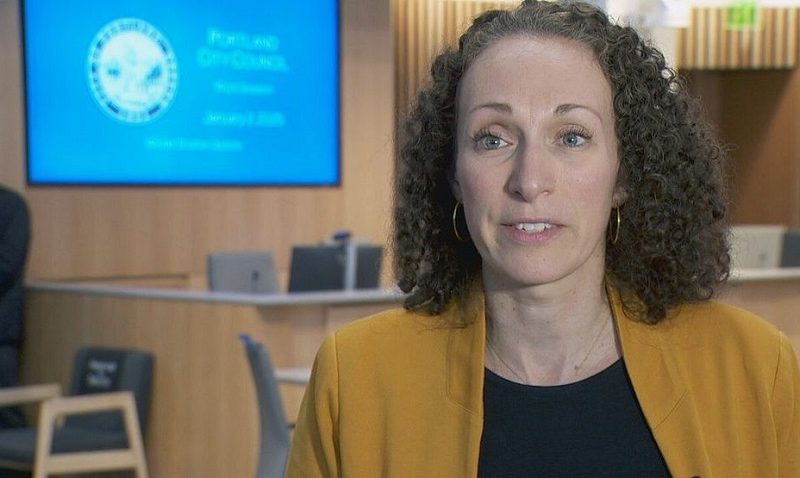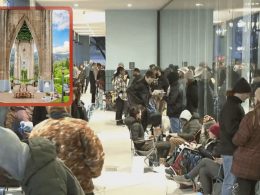Portland, OR – Portland’s newly restructured city council took a historic step on Thursday with the election of Elana Pirtle-Guiney as the city’s first-ever council president. The election, which took place during the council’s inaugural meeting, was a significant moment for the city’s new form of government, signaling the potential for future political divisions and the challenges ahead in building a majority.
Pirtle-Guiney, a representative for District 2, covering much of northeast Portland, secured the position after a tense and lengthy voting process. The council’s 12 members were initially divided between two main contenders: Candace Avalos, representing East Portland, who has emerged as a progressive voice on the council, and Olivia Clark, a more moderate representative from west and southeast Portland. The vote was evenly split 6-6, with progressive members backing Avalos and the moderate members supporting Clark.
The stalemate continued for several rounds, with councilors debating whether to grant Mayor Keith Wilson the power to break the tie. However, when that proposal was rejected, Councilor Loretta Smith introduced a third candidate: Pirtle-Guiney. Her candidacy quickly gained traction, and by the fifth round of voting, she had secured all of Clark’s votes. After several hours of recesses and negotiations, the deadlock was finally broken when Councilor Mitch Green, who had initially nominated Avalos, switched his vote to Pirtle-Guiney, securing her victory by a 7-5 margin.
Pirtle-Guiney, who has extensive experience in government, including roles as a policy advisor under Governors Kate Brown and John Kitzhaber and as legislative director for the AFL-CIO labor union, expressed gratitude for her colleagues’ support. “I have spent a lot of time throughout my career trying to build relationships,” she said. “If my colleagues believe I am the person to bring us together, I humbly accept that.”
As the new council president, Pirtle-Guiney will hold significant power under the city’s reformed government structure. The president will be responsible for setting the council’s meeting agendas, deciding when key issues come to a vote, and referring proposed items to the council from the mayor or the city auditor. The council’s vote on Pirtle-Guiney’s role marked the finalization of the position’s duties, which had been the subject of months of discussion and negotiation among council members.
The newly elected president’s role reflects a compromise between two factions within the council. Some members pushed for a stronger council president role, while others sought a more balanced power-sharing structure. Councilors Sameer Kanal and Eric Zimmerman, who led efforts to define the president’s responsibilities, described the agreement as a “short-term fix” designed to enable the council to begin working effectively while leaving room for further refinement in the coming weeks.
In addition to Pirtle-Guiney’s election, the council also unanimously elected Tiffany Koyama Lane, who represents much of southeast Portland in District 3, as vice president. Lane will assume the council president’s duties in Pirtle-Guiney’s absence.
Pirtle-Guiney’s term as president will run until the end of 2025, at which point councilors will elect a new president and vice president for the next term. The elections are expected to be closely watched, as the dynamics between the council’s progressive and moderate factions will continue to shape the city’s governance under the new structure.











